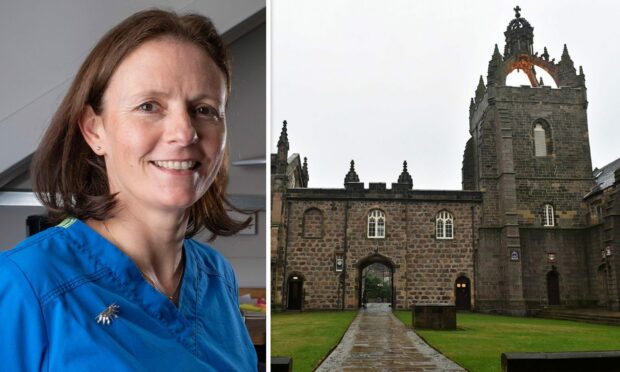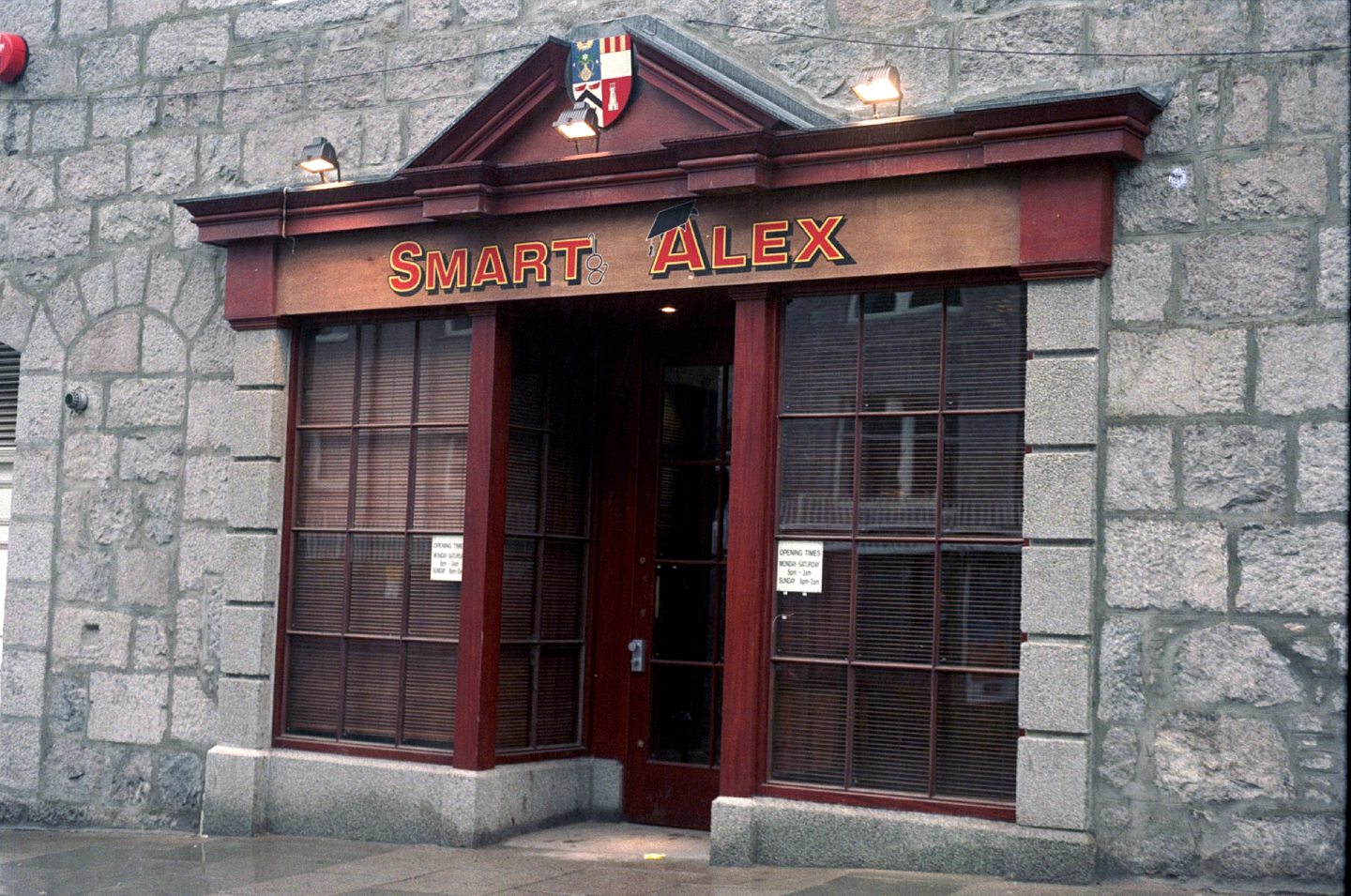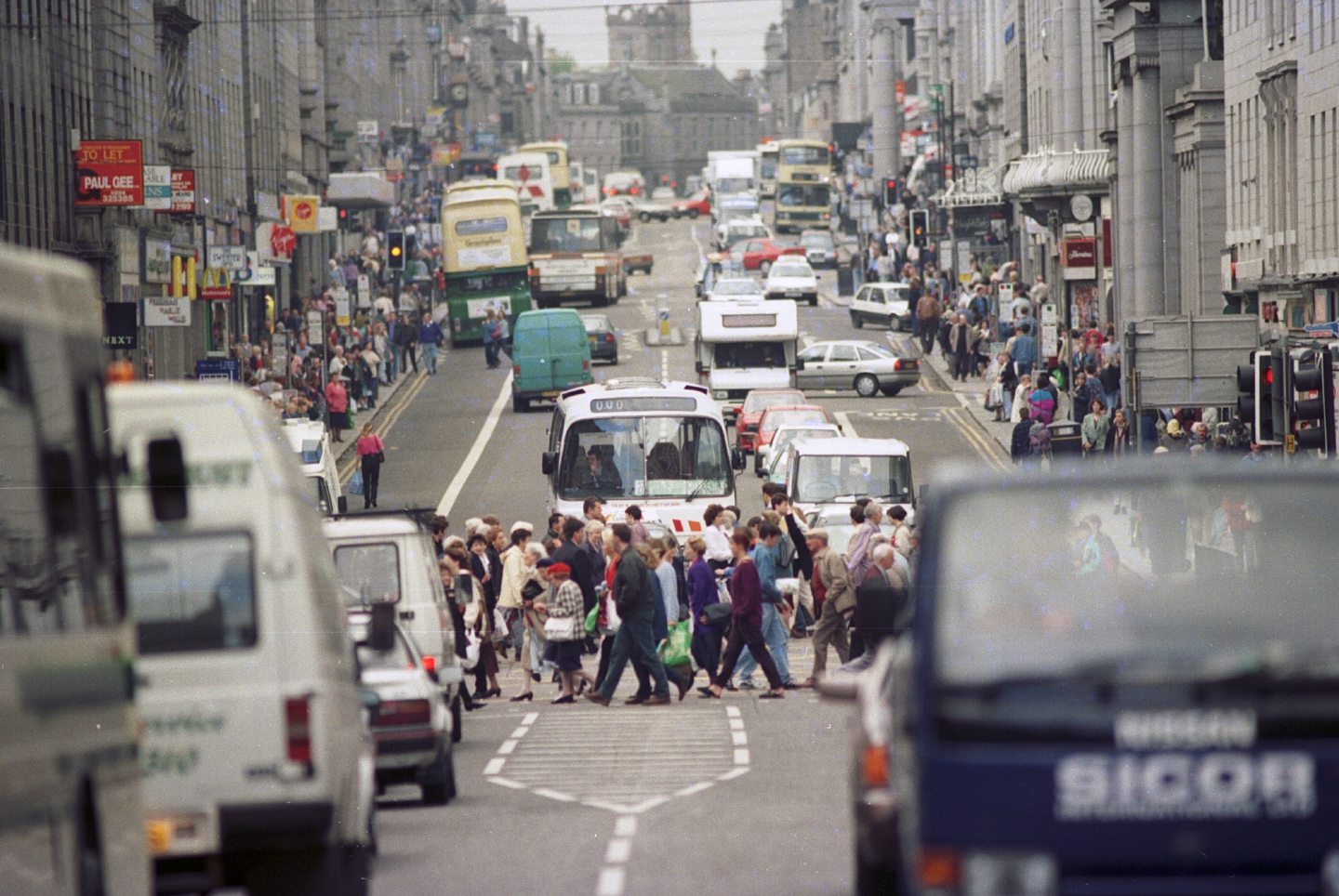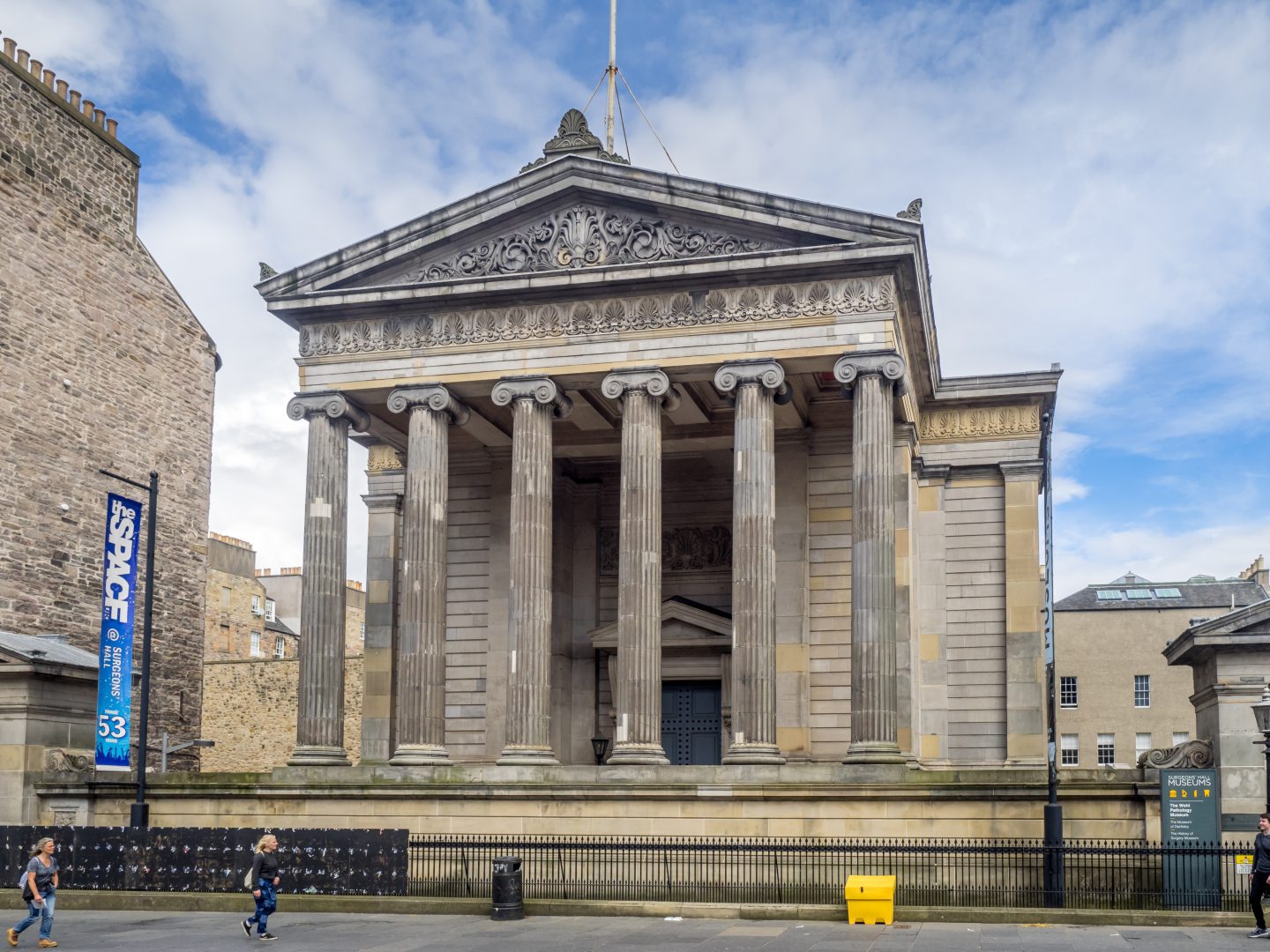After training to become a doctor in Aberdeen, Clare McNaught has become a leading voice at the oldest surgery organisation on the planet.
And as well as becoming the first female vice president of the Royal College of Surgeons of Edinburgh, she’s also the youngest in its 517-year history.
Performing operations for a living wasn’t the path she envisaged – let alone taking up a crucial role like this.
But she hopes her position will help others to dream big and achieve what they might think is impossible.
‘The Aberdeen people were fantastic’
Clare grew up in a council estate in Glasgow. Her mum was a nurse, and her dad a social worker.
And from an early age, she knew she wanted to get into the medical profession.
“With my mum’s background there was always chat around what happened every day – and I was fascinated,” she said.
“Even at primary school, I thought about becoming a doctor.
Clare McNaught, Consultant Colorectal and General Surgeon at HDFT, is the first women to be elected Vice President of @RCSEd since it was founded 517 years ago. We wish Clare all the best in this ground breaking new role🎉 #teamHDFT pic.twitter.com/ddaFl5w5aM
— Harrogate NHS FT (@HarrogateNHSFT) August 17, 2022
“I came into the world really studious – and a bit of a bookworm – and I think that helped.”
When she was 17, in 1990, Clare moved up to Aberdeen to study medicine.
She initially planned to be a physician, before finding her calling in surgery.
“I was very young to go to medical school but I had a wonderful time, I absolutely loved it,” she said.
“The Aberdeen people were fantastic and the medical school was exceptional.
“Even now, it has a good reputation for putting out well-educated and qualified doctors.”
Clare admits she was “a bit of a swot” and enjoyed studying, but balanced this with part-time jobs at local pubs including university bar Smart Alex on Littlejohn Street, which is now Six Degrees North.
She also worked at Union Street’s first McDonald’s during her first summer in the north-east, adding: “They actually paid better money than the pubs – and you got free food.
“But it was physically exhausting with long hours on your feet. It’s one of the hardest jobs I ever did.”
‘There’s no doubt working in the modern NHS is challenging’
Overall, Clare spent eight years in Aberdeen then moved to Yorkshire to complete her basic surgical training.
After that, she took two years out to complete a research degree and give her the extra edge when entering the workforce
She explained: “In those days, if you wanted to become a surgeon it was very competitive.
“I did a couple of years to get my doctorate in medicine, and it was in nutrition and what we call ‘enhanced recovery’.
“So I did some of the first trials in the UK for helping people get better after surgery quicker.”
After being awarded this new qualification – again by Aberdeen University – she began six years of training to become a colorectal cancer surgeon.
Clare then became a consultant at Scarborough Hospital, before moving to Harrowgate Hospital four years ago.
RCSEd Vice-President Clare McNaught tries her hand at winning a sought-after Eddie the unicorn! Clare will be at the stand for the next hour if you want to pop along for a chat. #FS22 pic.twitter.com/BHvjb8FMoD
— The Royal College of Surgeons of Edinburgh (@RCSEd) November 16, 2022
She said: “There’s no doubt that working in the modern NHS is challenging.
“Even at this stage of my career you think it’s going to get easier, but it doesn’t. Your problem just gets different and your workload changes.
“But I really enjoy looking after patients with cancer and giving them hope.
“There are long hours and it can be challenging, but it’s incredible and I love it.”
‘I want to be a role model’
As she rose through the ranks in the medical world, Clare also signed up to be an examiner with the Royal College of Surgeons of Edinburgh, helping to assess the next generation of medics.
From there, she took on more educational roles, edited its quarterly journal and was elected to the organisation’s council – the top team representing its 30,000 members across the world.
Last year, at 49, she was made its youngest ever vice-president – and the first female to hold this office since it was founded in 1505.
And Clare is determined to pave the way for more like her.
“When I was coming through there wasn’t anybody in my speciality of general surgery, and there were very few female consultants to act as role models,” she said.
“Looking back, it was a bit lonely because, if you worked in a hospital, you were usually the only registrar coming through the ranks.
“It was challenging in lots of ways – but I was well looked after and had a very good experience.
“Sadly, we know from lots of studies throughout medicine – and other professions – that not everyone has that journey.”
“The perception is that you can’t be a female surgeon and be a mum & have a family life, and that’s not true.”
This #InternationalWomensDay #iwd please take a couple of minutes to hear from our brilliant Consultant Surgeon Miss Clare McNaught. @RCSEd pic.twitter.com/vIn28hiwZc
— Harrogate NHS FT (@HarrogateNHSFT) March 8, 2021
Now, however, around 35% of doctors in surgery are female.
A smaller portion — just 12% — are at consultant level. But progress is being made.
Clare said: “It’s important that we have doctors who reflect the population they’re serving.
“Even now the data shows if you go to a private school or from certain demographics you’re more likely to be successful.
“We’re starting to see changes, but not quickly enough.
“But for me, getting to this position, it sends a very clear message.
“A lot of people believe you can’t be what you can’t see – and here I am, in this position.
“And hopefully people can go: ‘If she can do it, I can too’.”




Conversation